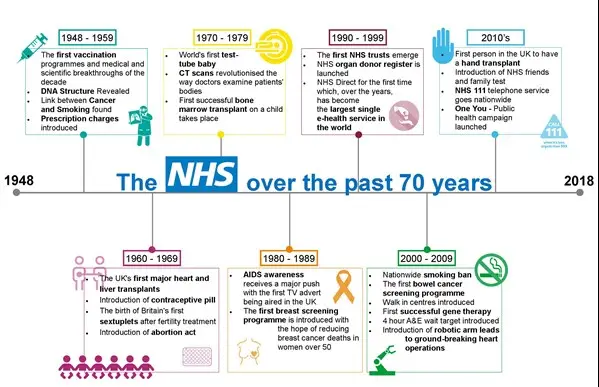Habib Bank AG Zurich Hit by Qilin Ransomware: 2.5TB of Sensitive Data Stolen in Major Banking Breach

In a significant escalation of ransomware attacks targeting financial institutions, the notorious Qilin ransomware group has claimed responsibility for breaching Habib Bank AG Zurich, allegedly stealing over 2.5 terabytes of data comprising nearly 2 million files from the Swiss-based international bank.
The Attack Unveiled
On November 5, 2025, the Qilin ransomware group posted Habib Bank AG Zurich to their dark web leak site, marking the bank as their latest high-profile victim. The cybercriminal organization claims to have exfiltrated massive amounts of sensitive information, including customer financial records, internal system source code, and personal identification documents.
The timing of this attack underscores the growing threat to global financial infrastructure, following recent incidents like Western Alliance Bank's breach affecting 22,000 customers through the Cl0p ransomware group's exploitation of file transfer software. Qilin's aggressive campaign has already resulted in over 950 compromised organizations since 2023.
Scope of the Data Breach
According to screenshots reviewed by cybersecurity researchers, the stolen data appears to include:
- Customer passport numbers and identification documents
- Bank account balances and transaction histories
- Payment notifications revealing transaction amounts and locations
- Internal banking tools' source code
- Know Your Customer (KYC) documentation
- Employee records and internal emails
The theft of source code is particularly concerning, as it could reveal vulnerabilities in the bank's internal systems that could be exploited for future attacks or sold to other threat actors.
About Habib Bank AG Zurich
Founded in 1967, Habib Bank AG Zurich has established itself as a prominent international banking institution with a substantial global footprint:
- Global Presence: Operations spanning Switzerland, United Kingdom, United Arab Emirates, Hong Kong, Kenya, South Africa, and Canada
- Representative Offices: Bangladesh, China, Pakistan, and Turkey
- Scale: Nearly 7,900 employees across 587 offices worldwide
- Revenue: Approximately $750 million in annual revenue (2024)
The bank offers comprehensive financial services including personal banking, private banking, trade finance, correspondent banking, and remittance services to both individual and corporate clients across multiple jurisdictions.
Bank's Response
While Habib Bank AG Zurich has acknowledged unauthorized access to its network, the institution maintains that its banking services remain fully operational. The bank has posted a notice on its website stating:
"Our banking services remain unaffected, fully operational and available to all our customers."
According to reports, a team of cybersecurity experts is actively working to determine the full extent of the data leak and implement additional security measures to secure the network. However, the bank has not provided detailed information about the breach or confirmed the volume of data allegedly stolen.
The Qilin Ransomware Group: A Growing Threat
Qilin, also known as Agenda, has rapidly emerged as one of the most prolific and dangerous ransomware operations in the cybercrime landscape. Operating since July 2022, the group has evolved into a sophisticated Ransomware-as-a-Service (RaaS) operation that has become the most active ransomware group over the past seven months, as documented in our August 2025 analysis where Qilin led with 72 data leak disclosures.
Key Characteristics of Qilin:
Business Model:
- Operates as RaaS, providing tools and infrastructure to affiliates
- Affiliates earn 80% of ransoms under $3 million, 85% for larger amounts
- Recently added "Call Lawyer" feature offering legal counsel to affiliates, as detailed in our Summer 2025 Threat Intelligence Report where Qilin maintained consistent operational tempo
Technical Capabilities:
- Cross-platform ransomware written in Rust and Golang
- Targets Windows, Linux, and ESXi systems
- Uses AES-256-CTR encryption with RSA-4096 key protection
- Employs advanced obfuscation and defense evasion techniques
Attack Methods:
- Initial access through phishing emails, stolen credentials, or vulnerability exploitation
- Exploitation of Fortinet firewall vulnerabilities (CVE-2024-21762, CVE-2024-55591)
- Use of legitimate remote access tools like AnyDesk, ScreenConnect, and Splashtop
- Systematic targeting of backup infrastructure to prevent recovery
Recent High-Profile Attacks
Qilin's victim list includes major organizations across multiple sectors, demonstrating their position among the most active ransomware groups—a trend documented in our comprehensive analysis of 2025's major cyber attacks. Notable victims include:
- Synnovis Laboratories (NHS Partner): Disrupted services at multiple UK hospitals, forcing cancellation of over 10,000 appointments and procedures, as covered in our analysis of the evolving threat landscape
- Covenant Health: 7,864 individuals affected in May 2025 attack where Qilin posted proof on their dark web leak site
- SK Telecom: South Korean telecom giant, 1TB of data stolen
- Volkswagen Group France: 150GB of client, employee, and business data
- Nissan Creative Box: 4TB of sensitive design data from the Tokyo studio
- Asahi Group Holdings: Japan's largest brewer disrupted by Qilin, causing beer production delays
- Multiple US Electric Cooperatives: Financial records exposed
Double Extortion Tactics
Qilin employs a sophisticated double extortion strategy that has become standard among modern ransomware operations, as detailed in our October 2025 ransomware onslaught report where multiple groups including Qilin posted victims simultaneously. The group's strategic targeting was also evident in September 2025 when they exfiltrated 22GB from Globelink International. Rather than simply encrypting victim data, the group:
- Exfiltrates sensitive data before deploying encryption
- Posts victims on their leak site as a pressure tactic
- Threatens public release of stolen data if ransom demands aren't met
- Stages data releases to maximize psychological pressure
This approach significantly increases pressure on victims, as they face not only operational disruption but also the threat of sensitive data exposure, regulatory penalties, and reputational damage.
Implications for the Banking Sector
The Habib Bank AG Zurich breach highlights several critical concerns for financial institutions globally. As documented in our analysis of late 2025 cyberattacks, the financial sector remains a prime target, with banking ranking as the No. 1 industry for detected ransomware attacks:
Regulatory Compliance
With operations across multiple jurisdictions, the bank may face regulatory scrutiny and potential penalties under various data protection regulations, including:
- Swiss Federal Act on Data Protection
- EU General Data Protection Regulation (GDPR)
- UK Data Protection Act
- Regional banking regulations in operating countries
Customer Impact
The exposure of passport numbers, account balances, and transaction data puts customers at risk of:
- Identity theft and fraud
- Targeted phishing attacks
- Financial losses
- Privacy violations
Operational Security
The theft of source code could have long-term implications:
- Exposure of system vulnerabilities
- Potential for future targeted attacks
- Need for comprehensive code review and system hardening
- Possible exploitation by other threat actors
Qilin's Alliance with Other Ransomware Groups
Recent intelligence indicates that Qilin has formed alliances with other notorious ransomware operations, including LockBit and DragonForce. According to our ENISA Threat Landscape analysis, Qilin represents 7.5% of EU ransomware attacks, making it one of the top three most active groups. This collaboration mirrors concerning trends in the ransomware ecosystem, including cases where cybersecurity experts themselves have been indicted for conducting ransomware attacks they were supposedly hired to prevent. These partnerships could lead to:
- Shared tactics, techniques, and procedures (TTPs)
- Increased attack volume and sophistication
- Resource sharing and operational support
- Coordinated campaigns against high-value targets
Recommendations for Financial Institutions
In light of this breach, financial institutions should immediately:
Immediate Actions:
- Patch Management: Prioritize patching of known vulnerabilities, especially in VPN and remote access systems
- Multi-Factor Authentication: Enforce MFA across all systems, particularly for administrative access
- Network Segmentation: Implement strict segmentation between critical systems
- Backup Security: Isolate and protect backup infrastructure from main networks
Ongoing Security Measures:
- Employee Training: Regular security awareness training on phishing and social engineering
- Incident Response Planning: Test and update incident response procedures through tabletop exercises
- Threat Intelligence: Monitor ransomware group activities and emerging TTPs
- Zero Trust Architecture: Implement zero trust principles across the organization
- Regular Security Audits: Conduct comprehensive security assessments and penetration testing
Detection and Monitoring:
- EDR Solutions: Deploy advanced endpoint detection and response capabilities
- Network Monitoring: Implement comprehensive logging and anomaly detection
- Dark Web Monitoring: Monitor for leaked credentials and company data
- Vulnerability Scanning: Regular scanning for exposed services and misconfigurations
Looking Ahead
The Habib Bank AG Zurich breach represents a continuation of the alarming trend of sophisticated ransomware attacks targeting financial institutions. With Qilin's proven track record of successful attacks and their evolving capabilities, organizations must assume they are potential targets and prepare accordingly.
The financial sector's interconnected nature means that breaches like this have ripple effects across the global banking ecosystem. As ransomware groups become more organized and their attacks more sophisticated, the need for robust cybersecurity measures has never been more critical.
Conclusion
The alleged breach of Habib Bank AG Zurich by the Qilin ransomware group serves as a stark reminder of the evolving cyber threat landscape facing financial institutions. With 2.5TB of sensitive data potentially compromised, including customer information and proprietary source code, this incident could have far-reaching implications for the bank, its customers, and the broader financial sector.
This attack is part of a broader pattern documented in our 10 Latest Global Cybersecurity Breaches report, where financial services continue to face escalating threats from sophisticated ransomware operations.
As investigations continue and the full extent of the breach becomes clearer, this attack underscores the critical importance of proactive cybersecurity measures, comprehensive incident response planning, and the need for continued vigilance in protecting sensitive financial data from increasingly sophisticated threat actors.
Financial institutions worldwide should view this incident as a wake-up call to reassess their security postures, particularly regarding ransomware preparedness and response capabilities. The rise of RaaS operations like Qilin, combined with their aggressive tactics and growing alliances, suggests that the ransomware threat to the financial sector will continue to intensify in the coming months.
This article will be updated as more information becomes available about the breach and its impact on Habib Bank AG Zurich and its customers.
For more cybersecurity news and analysis, visit breached.company
Related Articles:
Qilin Ransomware Coverage:
- August 2025: Qilin Leads with 72 Data Leak Disclosures
- Covenant Health Cyberattack: 7,864 Affected by Qilin
- Ransomware Onslaught: Qilin Posts Fresh Victims
- ENISA Analysis: Qilin Among Top 3 EU Ransomware Groups
Financial Sector Breaches:
- Western Alliance Bank: 22,000 Customers Affected
- Conduent Ransomware Attack: SafePay Gang's 8.5TB Healthcare Breach
Broader Threat Landscape:





